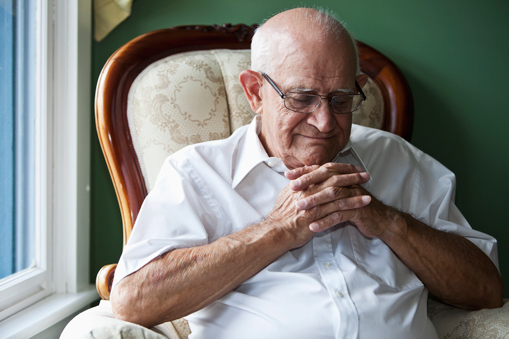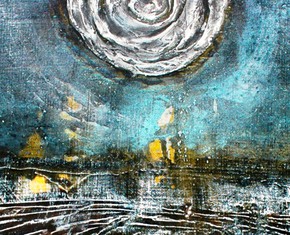The views expressed in our content reflect individual perspectives and do not represent the authoritative views of the Baha'i Faith.
Last week, someone close to me passed away. He was very elderly—suffering from congestive heart failure and dementia—and seemed spiritually ready to move on from this world. While I found it hard to say goodbye to someone I’ve known and loved for three decades, I am comforted by the idea that his soul lives on and will continue to progress and serve in the next world.
When our loved ones pass from this world to the next stage of existence, we mourn for our loss. We wish we could talk, laugh, and serve with them again. We miss them. Many major faith traditions, however, share a belief in an afterlife. In fact, these religions teach that the transition to the afterlife actually brings great joy.
Judaism, for example, teaches that the world to come is “not like this world.” According to the Talmud, in the world to come
…there is neither eating nor drinking, nor procreation of children or business transactions, no envy or hatred or rivalry; but the righteous sit enthroned, their crowns on their heads, and enjoy the luster of the Divine Splendor. – Berakot 17a.
To prepare for this spiritual world to come, we need to become detached from material things. In the Book of Matthew, Jesus says:
Do not lay up for yourselves treasures on earth, where moth and rust consume and where thieves break in and steal, but lay up for yourselves treasure in heaven, where neither moth nor rust consumes and where thieves do not break in and steal. For where your treasure is, there will your heart be also. – 6.19-21.
Baha’is believe that this material world to which we all cling resembles the world of the womb, a place to acquire the spiritual qualities needed in our life in the world to come. This idea was expressed long ago by the 13th century Persian Sufi poet Rumi, who said:
Death is in reality spiritual birth, the release of the spirit from the prison of the senses into the freedom of God, just as physical birth is the release of the baby from the prison of the womb into the freedom of the world. While childbirth causes pain and suffering to the mother, for the baby it brings liberation. The Mathnavi III. 3556-60.
According to the Teachings of Baha’u’llah, the prophet and founder of the Baha’i Faith, we should think of death as a “messenger of joy” bringing us happiness and liberation. With “joyful tidings of light,” God hails us to the “court of holiness,” calling on us to “rejoice” and “abide in peace forevermore.” – The Hidden Words, p. 11.
For Baha’is, the afterlife is not a separate place from this world, but a spiritual realm superimposed upon it. Those souls who have passed over are not far away–they still have consciousness and life, remaining close to us, a loving presence in our lives. They rejoice with us in times of happiness and pray over us, offering spiritual comfort and strength, in difficult times. Sometimes we meet them in dreams where they tell us directly or symbolically of the peace and beauty they have found, now that they are free of their mortal difficulties and limitations. Sometimes we feel their nearness when we open ourselves in prayer and meditation. Baha’u’llah tells us “the light which these souls radiate is responsible for the progress of the world and the advancement of its peoples.”
The Baha’i teachings also affirm that the progress of the soul in the afterlife is infinite–it continues to evolve spiritually, acquiring greater strengths and faculties. While the condition of the soul in the next world remains a great mystery to us, we are assured that God immerses our loved ones in the sea of His mercy, experiencing greater and greater intimacy with and nearness to the Divine. Those of us still here in the material realm can pray for the progress of their souls–just as they pray for us–and good works done in their name can help them advance spiritually.
Those who have passed on to the next world will always be cherished by their families and friends. As a Baha’i, though, I also believe that their luminous souls, living on in the world to come, shower us with love, prayers, mercy, and assistance.
My favorite Baha’i prayer for the departed ends by saying:
O Lord, glorify his station, shelter him under the pavilion of Thy supreme mercy, cause him to enter Thy glorious paradise, and perpetuate his existence in Thine exalted rose garden, that he may plunge into the sea of light in the world of mysteries. – Abdu’l-Baha, Baha’i Prayers, p. 44.
I’m not worried about my loved one who recently passed away. I feel sure that—glorified and sheltered in a paradisal rose garden and bathed in a sea of light—he watches over his loved ones and still seeks to assist us from the world of mysteries.

















Comments
Sign in or create an account
Continue with Googleor